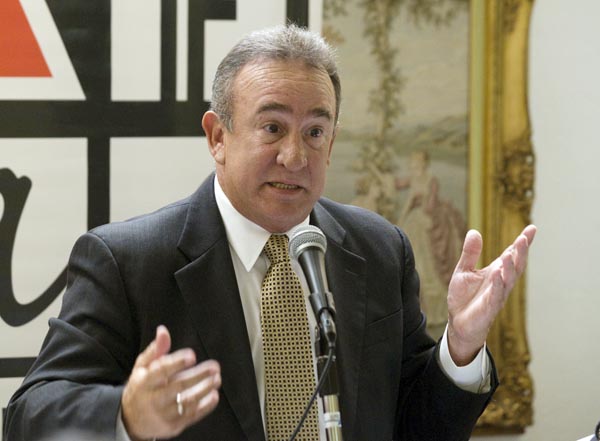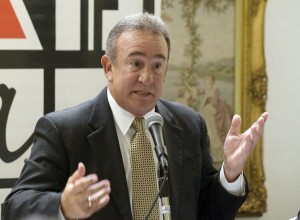Manuel Cidre: Puerto Rico needs a CEO as governor

Cuban-born Manuel Cidre, a highly successful CEO who’s put off by the partisan bickering he says has crippled the island’s economy, wants to make Puerto Rico great again — so he’s running for governor as an independent.
“A friend of mine said, ‘You’re like Donald [Trump,] but with sensitivity’,” Cidre joked.
Trumpism aside, the 63-year-old bakery executive claims he’s the only one of the six candidates with the business experience to bring Puerto Rico out of its financial mess.
“What we needs is a CEO who knows how to run a business that’s $68 billion in debt,” he said. “That’s a lot of money.”
Born in the Havana suburb of Tarará, Cidre — whose family traces its roots to Spain — left Cuba in 1962 as a young boy, returning for the first time only last year.
Cidre launched his company, Los Cidrines, in 1978 at the age of 23, with his brother Guillermo. The quesitos they produced at their Arecibo bakery were so popular that in 1982, Cidrines opened a second outlet, in San Juan. Six years later, they established a 4,000-square-foot manufacturing facility in Arecibo’s Zeno Gandia Industrial Park to produce frozen baked goods for supermarkets throughout the island.
In 1990, Los Cidrines enlarged its factory to 20,000 square feet; today, the company has sales of $23 million, serves 500 places on the island and exports to the U.S. mainland. Now fully retired (the stores belong to his son Mateo, and the factory to his sister Maria Dolores and son Guillermo), Cidre said he wants to devote his life to bringing Puerto Rico back to prosperity.
Among other things, Cidre has chaired the local chapters of the federal Small Business Technology Center and the American Red Cross, as well as the Puerto Rico Products Committee. In 2003-04, he headed the powerful Puerto Rico Manufacturers Association.
“I had all this knowledge and expertise, so I decided to analyze the possibility of being part of the government,” he said. “I strongly believe that the reason Puerto Rico is in the position it’s in is because of the government. You can have lots of meetings with legislators and senators, but everybody listens to the governor.”
Cidre, interviewed recently at his campaign headquarters in Puerto Nuevo, said he’s spending $400,000 of his own money on the race.
“People told me they’re sick and tired of what they have now. There’s massive emigration, property values are going down and we don’t have any statistics,” Cidre complained. “Puerto Ricans arriving to Orlando or Miami today feel at home. They have everything — their friends, their neighbors, even their doctors. The Puerto Rican crisis is more complicated than a debt. It could produce the biggest unregulated immigration in U.S. history.”
A recent El Nuevo Día poll put Ricky Rosselló of the pro-statehood New Progressive Party (PNP) in first place, with 40 percent of the vote, followed by David Bernier of the pro-commonwealth Popular Democratic Party (PPD), with 28 percent; independent candidate Alexandra Lúgaro, with 13 percent; María de Lourdes Santiago of the Puerto Rican Independence Party (PIP), with 3 percent; Cidre with 9 percent, and Rafael Bernabe of the Working Peoples Party (PPT), with 1 percent.
The six candidates gathered for two debates in September; two more are scheduled for Oct. 16 and Oct. 26.
Cidre said he broadly supports the goals of the recently enacted Puerto Rico Oversight, Management and Economic Stability Act.
“PROMESA aims to do only three things: to protect the debtors and bondholders, to guarantee to the federal government that we have order here, and to develop the island to the next phase,” he said. “Puerto Rico needs a CEO between the board of PROMESA and the local government.”
Cidre added: “If we work closely with PROMESA, we can use it not only to pay our debts but to develop Puerto Rico, in order to prepare it for a decision on whether to be independent or become a state.”
Yet Cidre — who clearly opposes the island’s current political status — declined to specify whether he wants independence or statehood. Regardless of the final decision, he said, “If we are going to be an independent country, we have to be prepared for that. And if we want to be part of the United States, we have to be prepared for that too.”




